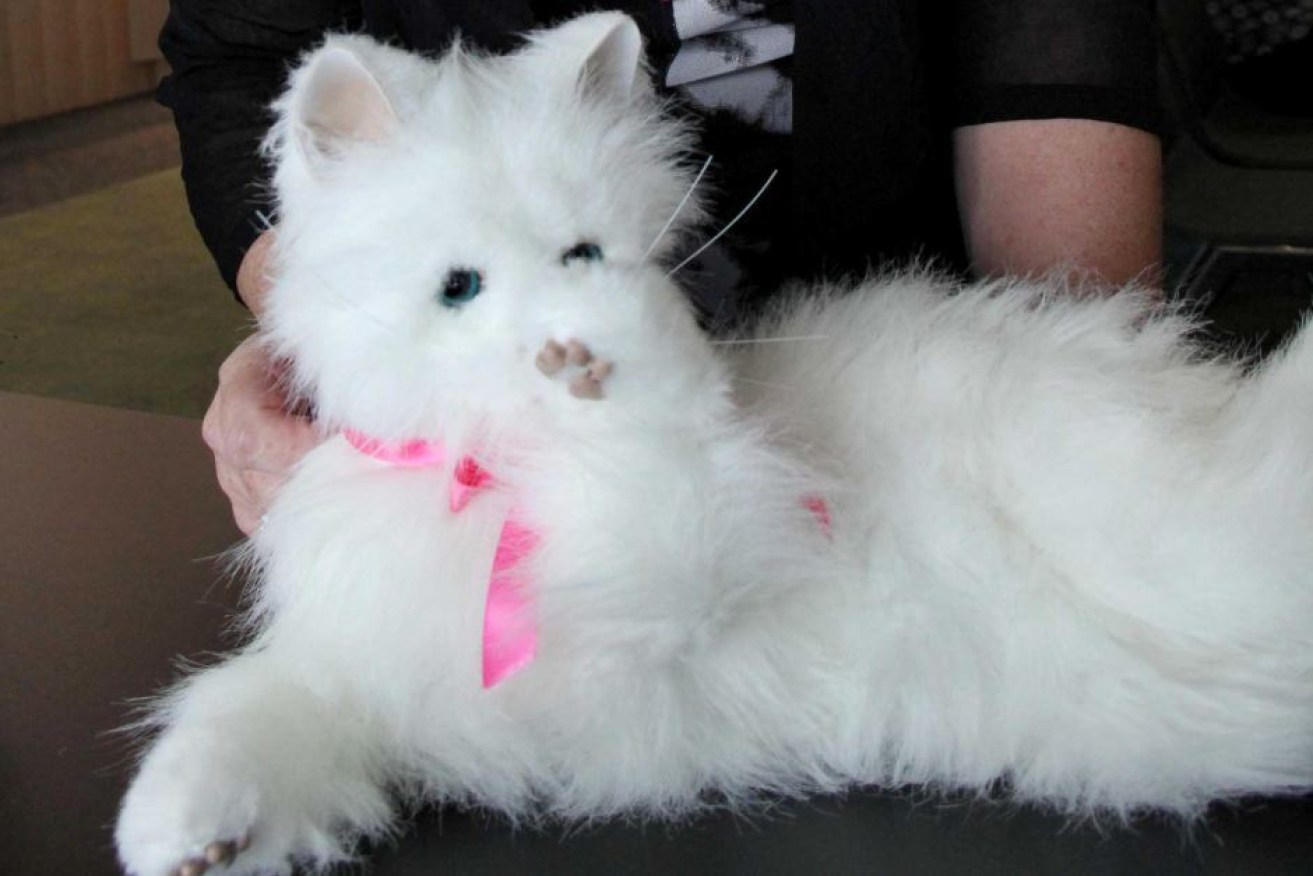Why robot pets are the way of the future

ABC
Robot pets could be common place in 10 years’ time and change the way we interact and relate with the real things, a Melbourne researcher believes.
Jean-Loup Rault from Melbourne University studies animal welfare and the way humans and animals interact with each other.
Recently, he has been looking into how technology has changed the way we relate to animals and pets.
• How man’s best friend hacked our brains for love
• The most easygoing cat and dog breeds
• The real cost of a pet
“We know very little about robotic pets, virtual animals online and what they actually do to people,” Dr Rault said.
“Is that going to change the way we relate to animals? Can that be a substitute to a live pet?
“Technology is moving very fast. The Tamagotchi in the early 1990s was really a prototype of a robotic pet and now Sony and other big companies have elaborated a lot on what have become robotic animals.”
He said humans were able to become emotionally attached to objects.
“There’s anecdotal evidence and a few studies that show people actually develop a bond, some kind of emotional attachment to those robots,” Dr Rault said.
“They know it’s not a live pet, they don’t consider it as a live animal but they also don’t consider it a mere object.
“It has an intermittent status between that of an animal and that of an object that projects some kind of personality.”
Dr Rault said robot pets could suit someone living in inner-city or high-density areas, as well as those with allergies and who were unable to look after a live animal.
But robotics expert Professor Maurice Pagnucco from the School of Computer Science and Engineering at the University of New South Wales said there was still a big gap between the current technology and a “virtual pet”.
“I don’t think we’re at the point where you could have a reliable pet,” he said.
“They wouldn’t be at the same level as a real pet, at the moment they’re basically toys.
“But where we’ll be in the future, we can’t really say.”
Technology ‘now part of our normal lives’
Dr Rault said the growing popularity of robot pets also raised questions about the way humans developed socially.
“There are school programs that use animals to teach children about responsibility, if you replace those live animals with robotic animals that don’t need to feed, you just plug them in and turn them off, is that the same thing?” he said.
“Are they going to develop in a different way?
“It raises some major ethical questions in the same way that Facebook has – does interacting with others on the site actually make you social or less social?”
Dr Rault said robot pets could also have a positive effect, with robotic baby seals being used in the United States to help people with Alzheimer’s.
“They found out if you gave them a robotic baby seal, people would interact with it and derive some benefits from it,” he said.
“Maybe you have a dog that stays at home when you’re at work so you buy it a robotic companion, so it interacts with it when you’re gone and it keep it company.
“It’s not replacing anything that we have, it’s creating something new.
“Now we think as them as strange, weird and perhaps creepy, but in 10 years’ time people may think it’s normal.
“The new generation is very different. This technology is part of their lives, it’s not seen as something extra.
“Will it change the way we interact with real animals? A difficult question to ask, but an interesting one.”
– ABC








